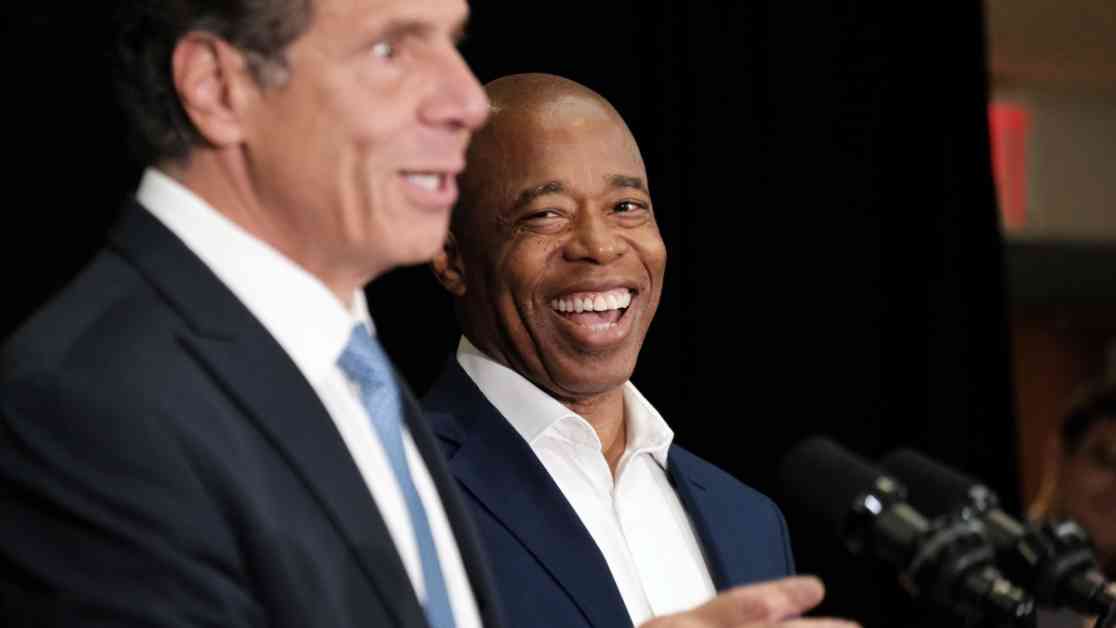New York City Mayor Eric Adams, despite facing steep challenges and a possible run by former Gov. Andrew Cuomo, is resolute in his bid to secure the mayoral race. Adams, who recently re-emerged from a health scare, is determined to hold onto his position and address concerns among his supporters.
A renewed sense of vigor was evident in his recent speech at an interfaith breakfast, where he vehemently dispelled rumors of an impending resignation. “Who started this stupid rumor that I was stepping down on Friday?” Adams questioned passionately. “Let me tell you why people are angry, because finally one of you is in charge of the city.”
The looming presence of former Gov. Andrew Cuomo, who has been quietly engaging with Black churches in the city, adds complexity to the race. While Cuomo has not officially declared his candidacy, conversations among his associates, including Reverend Al Sharpton, suggest strategic planning for a potential mayoral run. Sharpton, in a candid interview, emphasized the importance of meticulous preparation, cautioning against a premature entry into the race.
Despite not being an official candidate, Cuomo has already become the target of a negative ad campaign orchestrated by a group known as “United for a Brighter Tomorrow.” The ads emphasize Cuomo’s alleged neglect of Black New Yorkers and reference his past controversies, including a sex scandal. In response, Cuomo’s spokesperson dismissed the ads as extremist, underscoring that the situation remains speculative.
Conversely, a pro-Cuomo ad campaign led by his longtime associates is also in development, aiming to highlight his accomplishments as governor and bolster his standing in the community. Recent polls indicate that Cuomo could emerge as the frontrunner in the 2025 mayoral race, leveraging his financial resources and longstanding reputation in New York politics.
However, Adams and other candidates have initiated preemptive measures to counter Cuomo’s potential candidacy. State Senator Zellnor Myrie criticized Cuomo for his past decisions affecting healthcare in the city, while Harlem Reverend Johnnie Green acknowledged Cuomo’s accomplishments while emphasizing the importance of competency over racial considerations in the upcoming election.
In the midst of this political turbulence, Reverend Al Sharpton expressed confidence in Adams’ enduring support base, cautioning against premature judgments on the mayor’s prospects. Sharpton, who previously criticized Cuomo during his impeachment, highlighted the shifting political landscape following the presidency of Donald Trump, which has altered public perceptions of governance.
Reflecting on the evolving political climate, Sharpton emphasized the need for a nuanced evaluation of candidates, transcending traditional paradigms. “The one achievement Donald Trump has done is he’s lowered the bar so low that I don’t even know we can find it,” Sharpton remarked, underscoring the unprecedented nature of contemporary political dynamics.
As the mayoral race unfolds, the interplay between Adams, Cuomo, and other contenders will continue to shape the political landscape of New York City, heralding a new era of governance and public engagement. The outcome remains uncertain, but the enduring spirit of democracy and civic participation underscores the enduring vitality of the electoral process.












